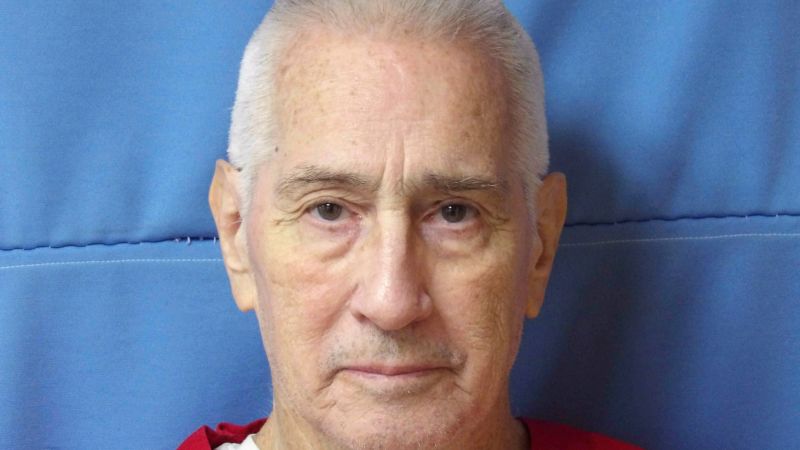Jackson, Mississippi (AP)— Mississippi’s longest-serving death row inmate is set to be executed Wednesday nearly five decades after he kidnapped and killed a bank loan officer’s wife in a violent ransom scheme.
Richard Gerald Jordan, a 79-year-old Vietnam veteran who suffers from post-traumatic stress disorder, is scheduled to receive a lethal injection at the Mississippi State Penitentiary in Parchman. He is one of several people on Mississippi’s death row suing the state over its three-drug execution protocol, which they claim is inhumane.
Jordan has several last-minute appeals still pending before the Supreme Court.
Jordan would be the third person executed in the state in the last 10 years; themost recent executionwas in December 2022.
His execution comes a day aftera man was executed in Floridain what is shaping up to be a year with the most executions since 2015.
Jordan was sentenced to death in 1976 for killing and kidnapping Edwina Marter, a mother of two young children, earlier that year. As of the beginning of the year, Jordan is one of 22 people across the country sentenced for crimes in the 1970s who are still on death row, according to the Death Penalty Information Center.
Eric Marter, who was 11 when his mother was killed, said neither he, his brother, nor his father will attend the execution, but other family members are expected to be there.
“It should have happened a long time ago,” he said of the execution. “I’m not really interested in giving him the benefit of the doubt.”
Mississippi Supreme Court records show that in January 1976, Jordan called the Gulf National Bank in Gulfport, Mississippi, and asked to speak with a loan officer. After he was told Charles Marter could speak to him, he hung up. He then looked up the Marters’ home address in a telephone book and kidnapped Edwina Marter. According to court records, Jordan took her to a forest and shot her to death before calling her husband, claiming she was safe and demanding $25,000.
“He needs to be punished,” Eric Marter said.
The execution would end Jordan’s decades-long court process that included four trials and numerous appeals. On Monday, the US Supreme Court rejected a petition that claimed he was denied due process rights.
“He was never given what, for a long time, the law has entitled him to, which is a mental health professional that is independent of the prosecution and can assist his defense,” said lawyer Krissy Nobile, the director of Mississippi’s Office of Capital Post-Conviction Counsel, who represents Jordan. “Because of that, his jury never got to hear about his Vietnam experiences.”
A recent petition asking Mississippi Gov. Tate Reeves forclemencyechoed Nobile’s claim. It argued Jordan developed PTSD after serving three back-to-back tours in the Vietnam War, which could have been a factor in his crime. Reeves denied the request.
“His war service, his war trauma, was considered not relevant in his murder trial,” said Franklin Rosenblatt, the president of the National Institute of Military Justice, who wrote the petition on Jordan’s behalf. “We just know so much more than we did 10 years ago, and certainly during Vietnam, about the effect of war trauma on the brain and how that affects ongoing behaviors.”
Eric Marter said he doesn’t buy that argument.
“I know what he did. He wanted money, and he couldn’t take her with him. And he — so he did what he did,” he said.
